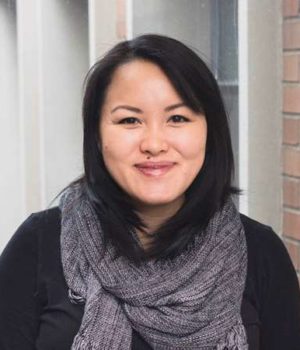Months after Wisconsin’s Hmong population celebrated the 45th anniversary of their first arrival in Wisconsin, UW-Oshkosh has approved a Hmong Studies Certificate to deepen understanding of the culture and history of Hmong American people and what their experience says about other global issues.
“I think people assume that Hmong studies is just the study of Hmong culture only,” said Dr. Mai See Thao, who was hired in 2020 to head up the new Hmong Studies program. “But the way that I was trained in the field of Hmong studies is to really look at Hmong studies as this critical field that inquires about the historical, political and social cultural experiences of the Hmong, which is oftentimes very much connected to issues of US imperialism. Having the consequences of war in Southeast Asia, and as well as what it means to be a refugee and how refugees continue on their life post resettlement in the US. There’s a lot of larger humanistic questions that the field is trying to speak back to.”
Thao, who grew up in the Oshkosh area, is a medical anthropologist with a PhD from the University of Minnesota and postdoctoral work at the Medical College of Wisconsin.
“I like to tell students that I’m a medical anthropologist, but my superpower is Hmong studies,” she said. “I’m a medical anthropologist, but Hmong studies is how I do that work, to really push the field of medical anthropology. And so for me, it’s always these very interdisciplinary, transdisciplinary conversations and potentials that can come out of Hmong studies.”
To earn a Hmong Studies Certificate, students must take 12 credits or four classes, including the two core courses of Introduction to Hmong Studies and Theorizing Hmong Studies, which Thao describes as “looking at all the theories that have been important to Hmong studies, which is statelessness, racialization, feminist theories as well.” Students can then choose two other courses from a list of electives, such as Memory and Trauma and Local and Global in Hmong Studies, which Thao teaches; Hmong Language, Culture, and Learning in the education department; social ecology in the sociology department; or the women’s and gender studies course Saving Seeds, Saving Community.
Thao said earning the certificate will be helpful to future educators, health care providers and other professions, as it will equip students with the tools necessary to serve an important but often marginalized ethnic group in Wisconsin.
Wisconsin has the third-largest Hmong population in the US, behind only Minnesota and California.
“I’m really deep into community-based participatory research. I love Hmong studies in the way that it’s theoretical, but also to engage it as applied,” she said. “And I think the certificate is really great because I see it as that health intervention, that students who are majoring in other disciplines can use the certificate as a way to think more critically about these larger issues that impact our health, our wellbeing, our community, our connections to one another. And then having that help, especially if our students stay in the area where there’s a big Hmong population, then it enables them and equips them better to engage in these larger structural issues.”
Thao said it’s too early to project how many students will enroll to earn the certificate, but said last semester’s Introduction to Hmong Studies course was full. She said the plan is to grow the program into a minor and then a major, which would require UW System approval.
The certificate will be the fourth in the state – UW-La Crosse, UW-Eau Claire and UW-Milwaukee have similar programs, and UW-Madison students can major in Asian American Studies with an emphasis in Hmong Studies. But outside Wisconsin and California, there are very few Hmong Studies programs.
“My friend the other day called me a trailblazer and I was joking with him that I think I’m a guinea pig instead,” Thao said.
Thao said discussions to implement a Hmong Studies program were already underway when a racist incident specifically targeting Hmong students took place in a 2019 student election, which accelerated the process. She said the program “100 percent” fits with a broader effort to diversify the curriculum, staff and student body at the university.
“I’ve been given a lot of support from the chancellor, provost, and dean to work on program building since I’m building this program from the ground up,” she said.
“We continue to examine how we can support faculty members in building inclusive academic programs at UWO that reflect the experiences and expand the knowledge of people in the communities, region and state our institution calls home,” UW-Oshkosh Chancellor Andrew Leavitt said in an email to Madison365. “Dr. Thao’s contributions have been outstanding. Her efforts are setting a standard for the development of programs to come.”










